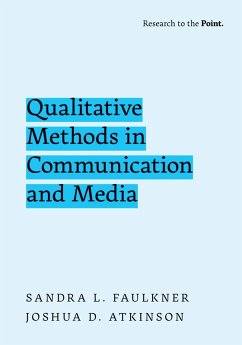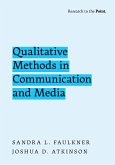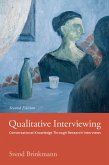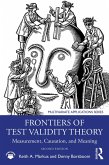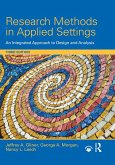Qualitative Methods in Media and Communication offers a learning-centered guide to designing, conducting, and evaluating qualitative communication and media research methods. Drawing upon years of teaching qualitative research methods, Sandra L. Faulkner and Joshua D. Atkinson introduce and unpack qualitative communication research method design, analysis, representation, writing, and evaluation using extended examples and clear discussion. The authors use key terms, extended examples, discussion questions, student-tested writing and research activities, examples of student work and questions, and suggested resources to help readers design, do, and analyze qualitative research. As a textbook, its pedagogical goals for the student include: (1) becoming a critical reader of research studies by understanding the epistemologies and methodological assumptions used by researchers, (2) learning the various methods, strategies, and approaches for doing qualitative research, (3) developing a strong basic vocabulary and understanding of concepts relating to qualitative and humanistic research methods, (4) understanding special concerns related to particular research methods, and (5) designing, executing, and representing original qualitative research projects. With numerous elements intended to engage students and enrich the learning process, the book provides examples of how to do qualitative and critical analyses, including arts-based and media and textual analyses to understand, describe, and query communication and media research in a variety of communication areas. There is also an extensive discussion of ethics in qualitative research and spotlights with renowned researchers on hot topics in qualitative research.
Dieser Download kann aus rechtlichen Gründen nur mit Rechnungsadresse in A, B, BG, CY, CZ, D, DK, EW, E, FIN, F, GR, HR, H, IRL, I, LT, L, LR, M, NL, PL, P, R, S, SLO, SK ausgeliefert werden.

